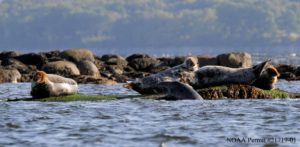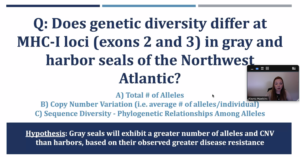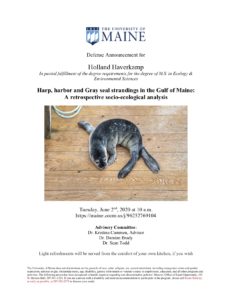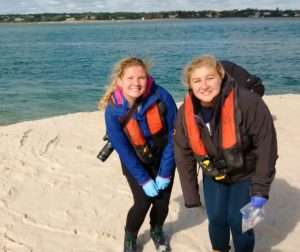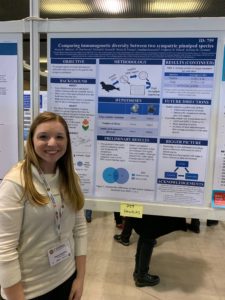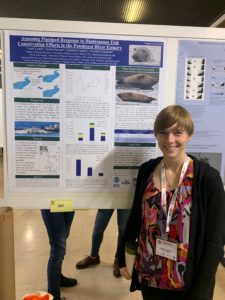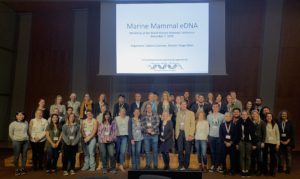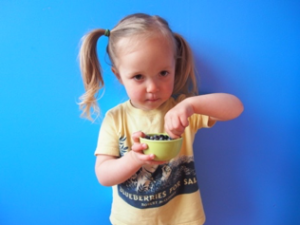Congratulations to Lauri Leach, who defended her Masters thesis, entitled Assessing predator risk to diadromous fish conservation in the Penobscot River Estuary. Lauri’s research assessed both the potential impact (through a spatiotemporal analysis of seal and prey distribution) and realized impact (through an analysis of seal-induced injury on Atlantic salmon) of seals in the Penobscot River. She also developed a photo-identification catalog of seals for future tracking of individuals in the Penobscot River. To learn more about Lauri’s fieldwork on the Penobscot River, check out her blog posts here.
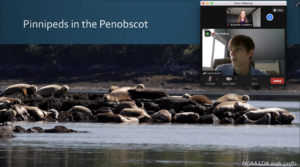
Please join us in congratulating Lauri on this professional milestone and wishing her well on her next adventure as a Knauss fellow for the Marine Mammal Commission in Washington, DC!

